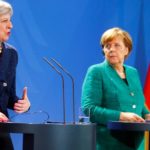
By Amelie Thompson and Ewan Edwards
Going into the evening it was unclear what we were to expect, there were the five major political societies (the Conservatives, Labour, Liberal Democrats, Socialists and Freedom society) and four of the most pressing political topics were up for debate: the climate, domestic issues, the current economic situation, and foreign affairs.
On the Current Political Climate, considering the Conservative Leadership Election
The running theme of this section was that the incumbent Conservative government, and Rishi Sunak more specifically, no longer has a mandate to govern. It was well argued by the Socialists, Labour and the LibDems that the continued change of manifesto, ideology and three leaders since December 2019 meant it is now necessary to have an election. The Socialists made the point of the fact Sunak only became PM on the back of 193 MPs support whilst it is a valid point, it is also worth noting, as the Conservatives did, that Britain is a Parliamentary system where power is vested by the people in their MPs. Unsurprisingly, the Tories were ready for this attack line from their opponents; they cited the fact that Keir Starmer has essentially dropped all of his pledges from his leadership bid and that the Lib Dems back tracked on supporting Brexit in 2017. This is true as their manifesto was in favour of maintaining the Brexit mandate but opposing a hard Brexit. After the Conservatives came Freedom’s turn to speak, which was a complete contrast to the rest of the panel thus far – this will become a theme of this article. They claimed there had been “no democratic election since 1997” as British politics has been swept by a social democratic agenda post-New Labour. Labour ironically quipped back at this ‘compliment’ to Blair, and gained an applause as they turned their criticism back to the Conservatives and the catastrophe of the almost-parity with the pound and the dollar.
On the Issue of Rising Energy Costs with Climate Change in Mind
Four of the parties had a surprisingly coherent message on this question with the exception of, you guessed it, Freedom society. This will become a consistent feature of the evening. Each agreed that the government had a role to play in incentivising technology and individuals to be more climate weary. The Conservatives advocated individual action with the push for more people to insulate their homes, this whilst being sound policy does run the risk of sounding tin-eared and unaware that not everyone has the ability to pay for re-insulating their homes. Along with a reel of other policies they suggested interest-free loans for domestic use solar panels. Labour, in response, stated there was “no magic money for the Conservatives”, ironic as this was a line levelled at Labour continuously in the last decade. Labour made no bones about the necessity of fossil fuels in the short term but argued that moving towards renewables was not only greener but would aid Britain’s energy security. The Lib Dems took a similar line, leaning on their current leader Ed Davey’s time as Secretary of State for Energy and Climate Change for credibility on this topic; they did however have a slight doomsday narrative about climate change talking of a “sixth mass extinction event” but in fairness this did win a round of applause. In a predictable twist, the Socialists called for nationalisation of all energy companies. Then in a break from the rest, Freedom highlighted how green technologies have not got the consumer utility or prize to yet be a credible form of energy for all. They got an applause on their point that “if you’re not paying government spending in tax, you are paying for it through inflation” which for the most part highlights the inconsistency in the Politics Societies audience who applauded the Lib Dems doomsday cry for help a matter of minutes after. In all, there was rather broad consensus that in the wake of this cost-of-living crisis, fossil fuels do remain important.
Would There be Support for Re-joining the EU.
No was the unanimous answer (Lib Dems excluded… obviously). However, some no’s were slightly fishy, perhaps Labour’s new found commitment to Brexit is because it is “the best chance they’ve got at government” as argued by the Lib Dems. On an astonishing note, the Conservatives backed re-joining the single market on the ever so selfless reasoning that their weekly Waitrose shops now have less variety. According to the Tories, J.L. Partners polling, the quoting of such became another consistent theme of the evening, 70% of people want a closer relationship with the EU. This gained criticism, as there were arguments from the opposing societies that the Conservatives were not aligning with the manifesto that their society represents. There was also an argument between Lib Dems and Conservatives between the appetite for more migrants, quoting polls that reflected two opposing opinions. Freedom had an impassioned monologue on the EU stating that “we jumped off the boat before it sank”, arguing against the consensus of the Conservatives and Labour that a close relationship with the EU should be worked towards.
On the UK’s intervention in the Ukraine War – had too much been done, or not enough?
With the exception of the Freedom society, there was significant consensus that the UK’s aid in the Ukraine war had been commendable, with some even saying that more should be done, though there was agreement that this should not include direct military intervention. The Socialists, Labour and Lib Dems all argued that the UK should welcome more Ukrainian refugees, as there was a moral obligation to do so. This was countered by the Conservatives, who argued that this should not be the focus, as Ukrainians ‘do not wish to be refugees.’ They upheld the UK as having the best policy in this crisis, arguing that this must be continued, regardless of the domestic turmoil that may occur. There was some disagreement between Lib Dems and the Conservatives, as the Lib Dems hailed Germany as an example, due to the number of refugees they had taken, yet the Conservatives highlighted how the nation had been funding Russia due to their continued use of their oil.
Yet, the controversy truly began as the Freedom Society began their piece: neither Ukraine nor Russia were morally superior. This prompted several gasps from the audience, and direct criticism from all other societies, yet they remained unwavering in their approach, and argued that both the UK policy and NATO expansion had been a disaster, with the only way forward being compromise to forge some kind of peace. All other societies agreed that there could be no positive compromise with a leader like Putin.
On the Issue of the Economy, how this Mess could be Escaped
This question arguably had the least consensus of the night, with the only areas of agreement being between the Lib Dems and Conservatives on the need for anti-NIMBY policies and development to protect the economy in the long-term, and the Labour and Lib Dems’ calls for a general election now – they claimed that this is not supported by the Conservatives due to their likelihood of loss. Opening the answers, the Conservatives were forced to accept the recent failures of the government, yet argued that now there should be a rallying of support behind Rishi Sunak to allow him to legislate – the details of such were limited in some areas. Policy details were also limited in the argument of Labour, who focused more on the failures of the Conservatives than the solutions that could be implemented. There was support of more spending, which, of course, garnered criticism from the Freedom Society, who strongly advocated the need not only for less spending and taxes, but the end to the ‘addiction to the drug of government’ (Freedom did like their analogies), with an overhaul of the system, including the abolition of the civil service and a reconsidering of the currently-ineffective NHS budget. The Socialist Society also called for a systemic overhaul, yet in a different realisation to Freedom. What would replace the system remained vague, yet ideas of workers’ rights, equality and the end of the exploitation for gain were central. Labour and Lib Dems also argued over the role of the Lib Dems in the 2010 coalition, with Labour arguing that this began the deterioration of the economy, whilst Lib Dems upheld that some of their 2010 policies aligned with Labour’s anyway. In classic centrist fashion, the Lib Dems supported a degree of spending, yet also the promotion of getting people into work, and having less taxes than Labour supported.
This question marked the end of the debate, with time for all parties to give a thirty-second sound-bite to finish. All statements followed a relatively predictable route – Socialists emphasised the need for a better system and more equality, Labour focused on the need for an election and how Starmer could bring change, Lib Dems argued for a pragmatic approach for the long-term, Conservatives asserted that there was still a mandate and that things would be improved, and Freedom society hailed their central principles of liberty and justice.
In all,
The Socialists seemed unsure of their own actual stance, claiming to only speak for their own points of view and not “the wider socialist movement” which is hard to quantify as they are there on behalf of their society. They seemed to be more radical in certain areas, yet joined the consensus on issues surrounding the EU and Ukraine. They did not receive a full applause throughout the debate, but gained notable laughter when questioning whether Freedom society had been watching Russian state media in the Ukraine Section.
Labour felt as if they had the most audience support, they had very little divisive points to say but did not sound boring, simply sensible and well-spoken. They grounded themselves as the ‘better alternative’ than the government, and distanced themselves from Corbynite policies and criticism, claiming Starmer as the way forward. Little rebuttal seemed to hinder their argument and they gained multiple applauses.
The Liberal Democrats started on the backfoot with one speaker unlike the rest who had two, thus there is some commendation for this. There was significant support for their climate approach, though this did not derive from the Conservative and Freedom sections of the audience. Their arguments in other areas were less notable, with much consensus being taken, and their arguments on the EU were shakier, and susceptible to opposition critique.
The Conservatives were very much caught between a rock and a hard place and were forced to defend policies or admit failures in certain areas – some defences led to laughter. Yet, in other areas, such as on Ukraine and anti-NIMBYism, applause was gained. They did also try to substantiate their claims with polling results (mainly from J.L Partners…), they did perform relatively well overall.
Freedom Society certainly knew their minds, they had consistency in argument, supporting government at its most minimal level, and the freedom of markets to allow business-lead innovation, and spoke well. However, they strangely kept levelling the argument at the Socialists that they had never been in government, which was easily rebutted by the fact that neither have they. They gained multiple applauses and had strong support from some of the Conservatives members – this was picked up on, and they argued that these members should join Freedom society instead. Let’s see whether the Conservatives suffer dwindling membership as a result.



Average Rating